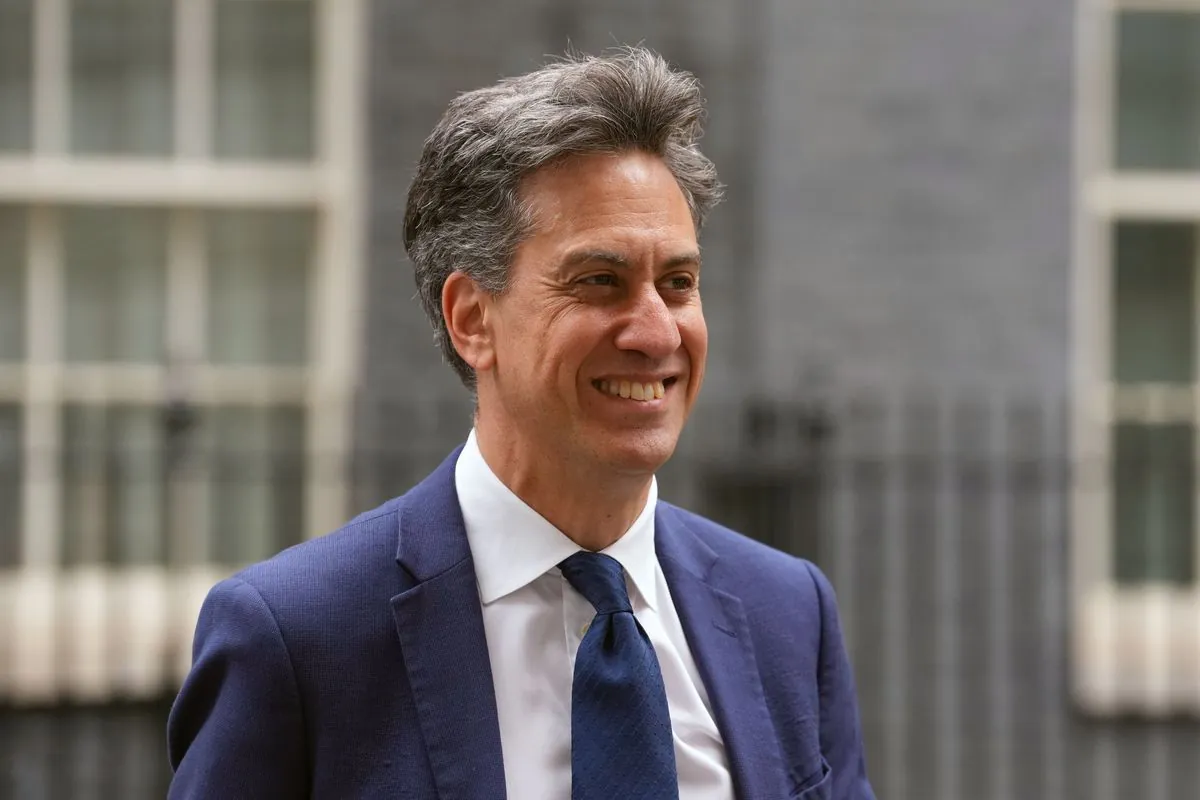Ed Miliband's recent endorsement of the 'Boiler Tax' policy has reignited debates about government intervention in home heating choices. The Clean Heat Market Mechanism, initially conceived by the Conservatives but now championed by Miliband, aims to boost heat pump sales to 600,000 units annually by 2028. However, this approach faces significant criticism from various quarters.
The policy mandates gas boiler suppliers to sell an increasing share of heat pumps, a move that has been likened to forcing teapot manufacturers to produce cafetieres. This comparison highlights the fundamental differences between these heating technologies. Heat pumps, which transfer heat from outside to inside a building, can be more energy-efficient than gas boilers in certain conditions. However, they often require extensive home improvements and may not be suitable for all properties.
Critics argue that the policy could lead to unintended consequences. The potential addition of fines to boiler prices, estimated at up to £180 per unit, may discourage homeowners from upgrading their heating systems. This delay could result in older, less efficient boilers remaining in use longer, potentially increasing gas consumption and emissions.
The UK's housing stock, among the oldest and least energy-efficient in Europe, presents unique challenges for widespread heat pump adoption. The energy efficiency of a home significantly affects the performance of heating systems, making the one-size-fits-all approach of the Clean Heat Market Mechanism questionable.
"The sensible policy for die-hard climate activists is to set a competitive carbon price, and let the market decide how best to decarbonise heat. No technology targets, no grandiose missions, no sweetheart meetings for cronies and donors in the Ministry, no pretence that the Government has the first clue how to plan the future."
This market-based alternative suggests setting a competitive carbon price to guide decarbonization efforts. Such an approach aligns with the UK's commitment to phasing out new gas boiler installations by 2035 and achieving net-zero emissions by 2050, as outlined in the Climate Change Act 2008.
The article warns of potential pitfalls, drawing parallels to past energy misselling scandals. It predicts that many beneficiaries of government subsidies may face heating system failures, while domestic producers affected by the 'boiler tax' might relocate production offshore.
As the UK's energy mix continues to shift towards renewable sources, the carbon footprint of heat pumps becomes increasingly favorable. However, the effectiveness of any heating solution depends on various factors, including home insulation and local climate conditions.
The debate surrounding the Clean Heat Market Mechanism reflects broader discussions about the role of government in shaping energy policy. While the UK government offers grants for heat pump installations through the Boiler Upgrade Scheme, critics argue that such interventions distort the market and may not achieve the desired outcomes.
As the implementation date of 2025 approaches, the controversy surrounding this policy is likely to intensify. The challenge lies in balancing the urgent need for decarbonization with practical, cost-effective solutions for homeowners across the UK.
